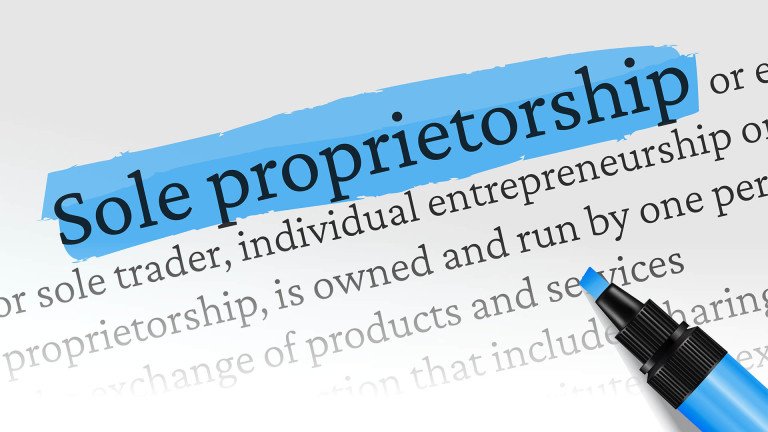A General Partnership involves persons, corporations, or trusts coming together to form a lasting partnership for a specific period.
Two or more parties agree to share a jointly-owned business's responsibilities, assets, profits, and financial and legal liabilities in this business arrangement. Liabilities are not capped as they would be in a partnership formed as a Limited Liability Partnership (LLP) or a Limited Liability Company (LTD).
Partners share responsibilities, profits, and liabilities, with no separate legal entity created. They are collectively responsible for each other's actions in a general partnership, and personal assets are at risk. The partnership may dissolve if a partner withdraws or passes away. No restrictions exist on who can become a partner and minimum share capital is required.
We offer a range of services to make it easy for you to get started, from facilitating registration with the Corporate Affairs Commission (CAC) to obtaining your Tax Identification Number (TIN). Our comprehensive business support will ensure you have everything you need to succeed.
Start your business today with SplashDict!

Register your General Partnership Business in Nigeria
Here's how SplashDict's team of CAC-accredited consultants can help:
Our Process
Make Payment Online
Add the product to the cart on the product page, then proceed to checkout and complete the secured online payment.
Tell us about your business
We'll process Application
Receive your documents
Once your registration documents have been approved by the Corporate Affairs Commission (CAC), you will receive your completed business entity package by e-mail/mail.
Why choose SplashDict?
Fast
Efficiency
Reliable
Transparent pricing
Packages
Find the best package to start your business:
Standard
₦25,000
- Nigerian General Partnership Business Name Registration
- CAC Filing Fee Included
- Digital delivery of Certificate of Registration
- Digital delivery of Status report
- Digital Storage of Documents
- Tax Identification Number (TIN) inclusive
- Registered in 2-7 working days
- Lifetime Support and Assistance
Premium
₦60,000
- All included in the Standard Plan
- 1-year Full Corporate Secretarial Support
- Printed Company Documents (Certificate of Registration, Status Report)
- VAT Registration
- Business Seal
- Business Bank Account opening assistance
- Free .com or .com.ng Domain Name

Requirements for Registering a General Partnership in Nigeria
To complete the Registration of Your General Partnership Firm in Nigeria, you'll have to provide the following details upon Submission;
- Proposed Name of the Business (2 Names).
- The objectives and nature of business.
- Details of at least 2 partners (Name, address, signature, passport, I.D, phone, email, etc).
- Details of verifiable registered address and address of the head office (if different from registered address), company’s email, and phone number.
- Partnership Agreement (We can provide this).
Features of General Partnership Business
How does a General Partnership Work?
Benefits of General Partnership Business
General Partnership have several advantages that make them popular:
Examples of General Partnership Business
Here are some examples of general partnership businesses:
- Legal Services: Law Firm Partnership, Legal Consulting Partnership, Paralegal Services Partnership.
- Financial Services: Financial Consulting Partnership, Tax Preparation Partnership, Bookkeeping Services Partnership.
- Real Estate: Real Estate Agent Partnership, Property Management Partnership, Real Estate Development Partnership.
- Entertainment and Event Services: Event Planning Partnership, DJ Services Partnership, Entertainment Booking Agency Partnership.
- Art and Design: Graphic Design Partnership, Interior Design Partnership, Art Gallery Partnership.

- Retail Businesses: Clothing Boutique Partnership, Grocery Store Partnership, Specialty Retail Shop Partnership.
- Food and Beverage Businesses: Restaurant Partnership, Catering Partnership, Bakery Partnership.
- Health and Wellness Businesses: Fitness Studio Partnership, Wellness Center Partnership, Alternative Medicine Practice Partnership.
- Home Services: Plumbing Partnership, HVAC Services Partnership, Home Renovation Partnership.
- Technology and IT Services: Software Development Partnership, IT Consulting Partnership, Web Design Partnership.
General Partnership FAQs
You can find some of our most frequently asked questions below;
In simple terms, a partnership is where two or more people in business decide to join forces and work together.
The only essential component is that the partners are working together to make a profit – you can’t run a charity or club as a partnership for example.
An unincorporated business structure that two or more parties form and own together is called a partnership. These parties, called partners, may be individuals, corporations, other partnerships, or other legal entities.
Partners may contribute capital, labor, skills, and experience to the business. They may have unlimited legal liability for the actions of the partnership and its partners.
The most common type of partner is a general partner, who actively manages and exercises control over the business operations.
Limited partners have limited legal liability. This type of partner cannot manage or exercise control over the business.
Among the most common types of partnerships are general partnerships (GP), limited partnerships (LP), and limited liability partnerships (LLP).
A partnership can even start without an oral or written contract. Where there is a written contract between the partners, it is called a partnership agreement. The partners agree on the purpose of the partnership and their rights and responsibilities.
A general partnership is a business structure where two or more individuals or entities (partners) join to carry on a business for profit. In a general partnership, partners share management responsibilities, profits, and liabilities.
Registering your general partnership's business name to establish legal recognition and protect your business identity is advisable. Registering your business name also helps prevent others from using the same or similar name.
- It’s the default structure for partnerships. Just like sole proprietorship is the default business structure for individual business owners, a general partnership is the default for multi-owner businesses.
- You and your partners are personally liable. Similar to sole proprietors, partners in a general partnership take on personal responsibility for the business. That means equal liability for debts or legal action. Partners can adjust the split of both profits and liabilities in their partnership agreement, but an equal split is the default.
- You’re taxed only one time. General partnerships are pass-through entities, meaning partners pay income taxes on profits at the personal level.
Usually, when you hear the term "partnership," it refers to a general partnership—that is, one where all partners participate to some extent in the day-to-day management of the business. Limited partnerships are very different from general partnerships, and they're usually set up by companies that invest money in other businesses or real estate.
While limited partnerships have at least one general partner who controls the company's day-to-day operations and is personally liable for the business's debts, they also have passive partners called limited partners. Limited partners contribute capital (investment money) to the business but have minimal control over daily business decisions or operations.
In return for giving up management power, a limited partner's personal liability is capped at the amount of their investment. In other words, the limited partner's investment can go toward paying off any partnership debts, but the investor's personal assets can't be touched—this is called "limited liability." However, a limited partner who starts tinkering with the management of the business can quickly lose limited liability status.
You can register your business name with the appropriate government authority, such as the Corporate Affairs Commission (CAC) in Nigeria. The process typically involves submitting the required documents and paying the registration fee.
SplashDict is equipped with accredited experts and the necessary resources to assist you in completing the Sole Proprietorship Business Name Registration in Nigeria.
Apart from resonating with your brand, your business name must comply with the CAC’s naming guidelines, which are in place to make sure business names are special, fitting, and don’t infringe on someone else’s trademark.
Here are some of CAC’s naming guidelines:
- Your business name has to stand out and be different from other business names or trademarks.
- Your business name should be related to what your business does; It shouldn’t mislead or confuse folks. For example, your business name should not imply you own a makeup studio if you are running a fashion store.
- Your business name must not be offensive, rude, discriminatory, or go against what’s considered good behavior in society.
- Your business name must follow all the laws and regulations in Nigeria. Don’t pick a name that suggests anything illegal or unethical. Also, don’t choose names that could trick or fool the public.
- Certain words are off-limits unless you get special permission. For example, words like “Federal,” “National,” and “Government” are reserved and need clearance from the right authorities before you can use them in your business name
The documents for registering your business name with the CAC include:
- Proof of your business’s registered address, such as a utility bill or lease agreement.
- A valid form of government ID (National identity card, international passport, driver’s license, voter’s card)
- National Identity Number (NIN)
The registration process timeline varies depending on CAC and the efficiency of processing. This is the timeline:
- Name Search and reservation: 6 - 24 hours from submission.
- Grant of Certificate of Registration: 24 -96 Hours from filing.
- Total time: Approximately 2 - 7 days.
In a Sole Proprietorship, the business is solely owned and operated by one individual, while a Partnership involves two or more individuals sharing ownership and responsibilities. The primary distinctions lie in ownership structure, decision-making authority, and liability.
In a Sole Proprietorship, the owner retains full control over business decisions, whereas in a Partnership, decision-making is shared among partners.
Additionally, in terms of liability, both structures expose owners to personal liability for business debts, but in a Partnership, this risk is distributed among partners, whereas in a Sole Proprietorship, the owner bears it alone.
Sole Proprietorship is ideal for individuals seeking complete control over their business operations, while Partnership suits those looking to share responsibilities and resources with others. Choosing between the two depends on factors such as ownership preferences, risk tolerance, and long-term business objectives.
Helpful Resources
We’ve got the expert insights your business needs.











